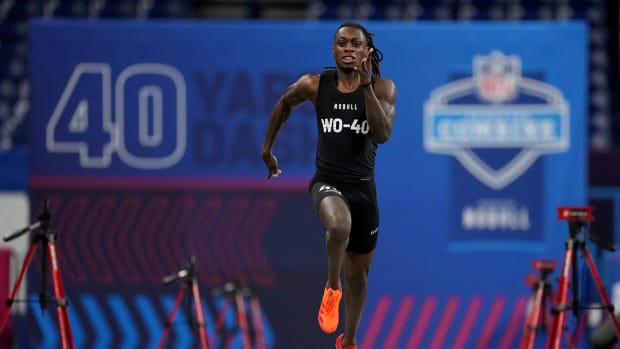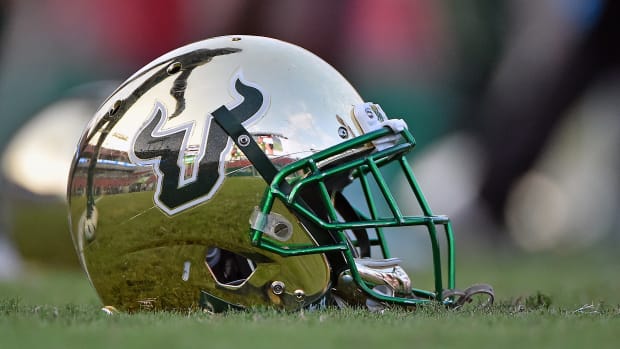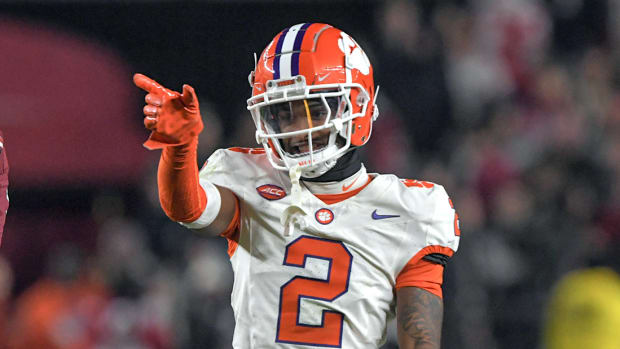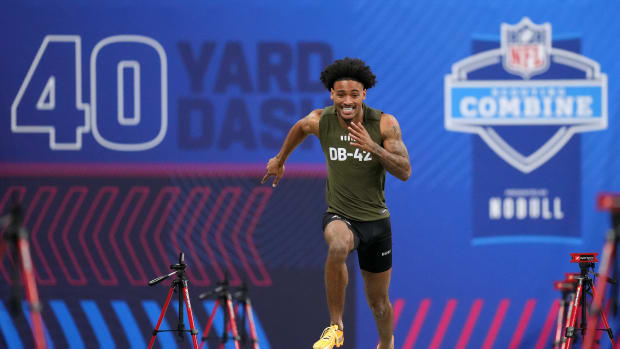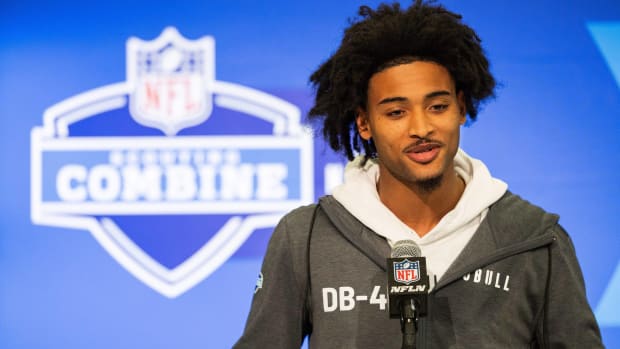Danny Ford: A Living Legend
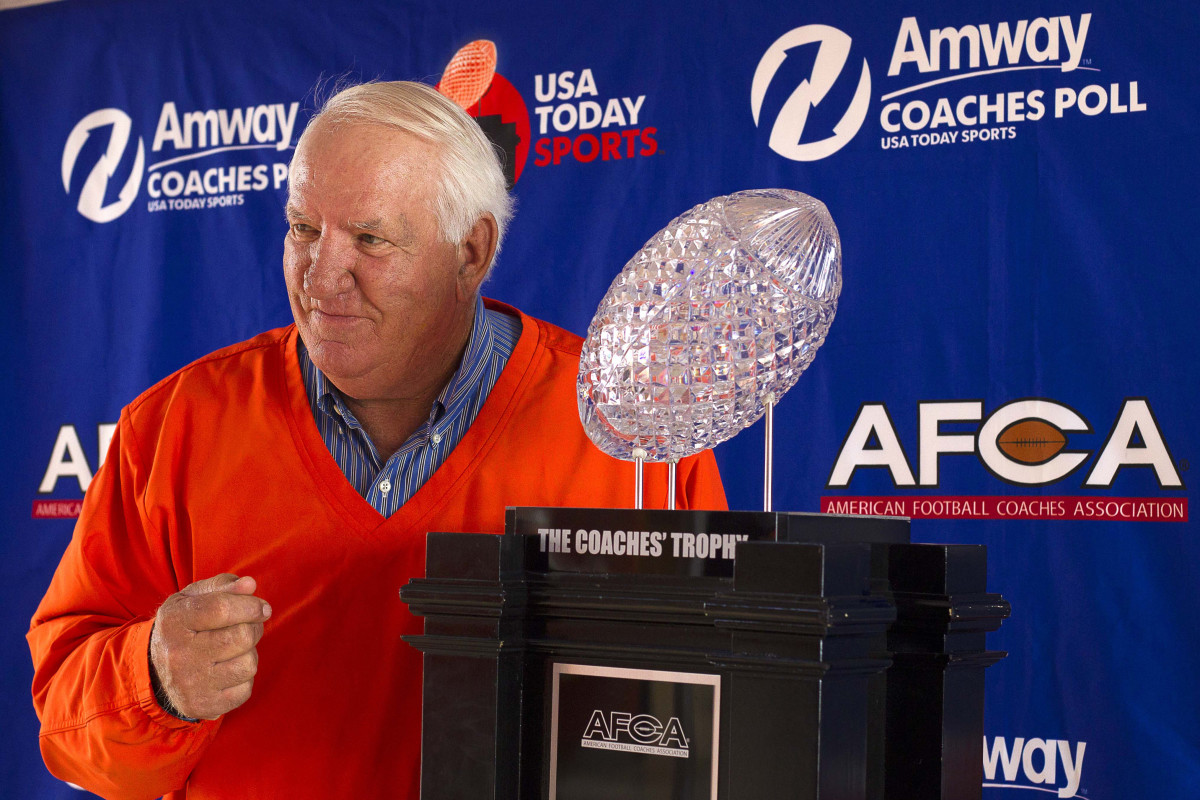
Clemson’s 1978 team posted a 10-1 record in the regular season and won nine games in a row and an ACC championship under Head Coach Charley Pell. The Tigers were ranked No. 7 in the nation and accepted an invitation to play Ohio State and future Hall of Fame Head Coach Woody Hayes in the Gator Bowl.
But in the first week of December, Pell decided to become the head coach at Florida. Two days later Athletic Director Bill McLellan promoted Danny Ford to head coach at the age of 30, at the time the youngest head coach in the nation. His first game was against Ohio State and Hayes on Dec. 30, 1978.
“I really didn’t know how to be a head coach,” admitted Ford in his classic humble manner. “I just made some decisions on penalties that night. We had some great coaches and some great players.”
Ford certainly had some great players help him in that first game, a 17-15 win over the Buckeyes. His roster included Jerry Butler, Jeff Davis, Steve Fuller and Terry Kinard (did not play due to injury), and all four of them preceded Ford into the Clemson Ring of Honor.
The victory received even more acclaim than normal because Hayes punched Clemson middle guard Charlie Bauman after he made a game-deciding interception late in the game that allowed the Tigers to clinch the two-point win on national television.
In the chaos of the moment and the chaos that followed the game, we learned a lot about Ford. At age 30, he had the maturity of a 20-year veteran coach the way he handled the situation.
Ford had a unique ability to motivate his players. He was a disciplinarian who worked his team hard. That hard work and respect went hand-in-hand in his ability to get the Tigers ready for highly-ranked opponents led by legendary coaches. In his 11 years as head coach, he led the Tigers to a 26-8-1 record over coaches who are now in the Hall of Fame.
That list includes Frank Beamer (Virginia Tech), Bobby Bowden (Florida State), Dan Devine (Notre Dame), Vince Dooley (Georgia), Hayes (Ohio State), Tom Osborne (Nebraska), Joe Paterno (Penn State), Steve Spurrier (Duke) and Barry Switzer (Oklahoma).
The 22-15 win over Nebraska in the 1982 Orange Bowl was the pinnacle of his coaching career because it culminated a national championship season, the first in any sport in Tiger history. Just 33 at the time, Ford is still the youngest FBS coach to win the national title.
“We took each game one at a time,” said Ford. “We didn’t look ahead and people really didn’t think we could do it. We never became No. 1 until Penn State beat Pittsburgh the Saturday after Thanksgiving.”
Davis confirmed that approach during the 1981 season.
“Coach Ford did a great job of making sure we took it one game at a time. When we beat North Carolina in Chapel Hill when we were both in the Top 10 and we moved to No. 2, it got a little harder to do. But he kept us grounded.”
The 1981 season is still one of the most bizarre in history from an upset standpoint nationally. Seven different teams were ranked No. 1 during the course of that year, still the most in one season in history.
It was a special night in Miami, Fla. on Jan. 1, 1982. There were some moments that day that Ford figured it would not be Clemson’s night. During the day, Cliff Austin was stuck in an elevator at the team hotel for two hours. Later that night, he would score an important touchdown in the second quarter.
Nebraska was ranked No. 4 in the nation entering the game, while Clemson was No. 1, Georgia was No. 2 and Alabama was No. 3. Alabama lost (14-12) in the Cotton Bowl earlier in the day, then Pittsburgh beat Georgia 24-20 while the Clemson vs. Nebraska game was in progress.
That meant, had Nebraska beaten Clemson, the Cornhuskers would have vaulted all the way to No. 1. Many Tiger fans worried that result would give Nebraska extra motivation. However, Ford’s defense dominated most of the game. When Andy Headen batted down a desperation pass, Clemson had the title.
Obviously, that victory over the Cornhuskers was the highlight of Ford’s career in terms of on-field results. But there were many other significant seasons and victories. He led Clemson to six total bowl victories, still the most in school history and second-most in ACC history. Five of the wins were over coaches in the Hall of Fame.
He had a school-record 20 wins over top-25 teams. He led Clemson to a streak of 41 consecutive weeks in the top 20 in the late 1980s. Seven years, he led Clemson to a top-25 final ranking. He also coached 26 All-Americans and 71 First-Team All-ACC players.
Ford finished with a record of 96-29-4, a 76-percent winning mark that is one of the best in ACC history.
Ford is proud of all of his former players, but he must hold some extra pride for those who went on to successful NFL careers. Eleven former players won Super Bowl championship rings.
Many of Ford’s former players were with him on Aug. 31, 2013, when he was inducted into the Ring of Honor. It proved to be a special night for Ford and Clemson football in many ways.
The ceremony took place 10 minutes before kickoff. Tiger fans were in the stands well before kickoff, which led to a very special moment on national television when the Tigers ran down the Hill. It certainly contributed to the atmosphere in Death Valley, and the game against Georgia kept the atmosphere alive.
Clemson defeated No. 5 Georgia 38-35. The winning touchdown was scored by #81 Stanton Seckinger.
“I am so happy for Coach Ford,” said Head Coach Dabo Swinney, a fellow Alabama alum. “It was a special night and everything was so fitting. So fitting that he was inducted prior to a Clemson-Georgia game, because those games were legendary when he was the coach here.
“Coach Ford established a standard. He told Clemson people that you can do it here. I have always had great respect for Coach Ford. He’s always gone above and beyond to help our program.”




